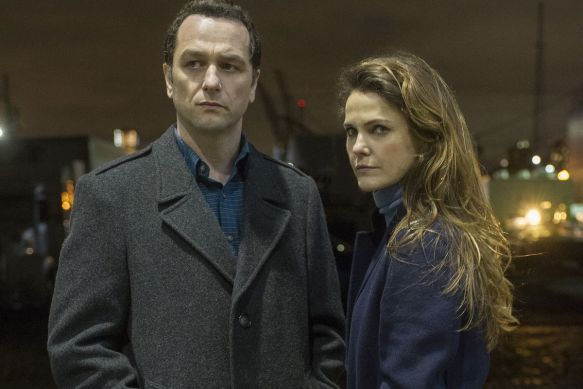“You know, most jobs suck 99 percent of the time, so you really … You really gotta enjoy those moments that don’t. Those bits of fun you have during downtime. Or an interesting conversation with a coworker. Or something happens that you can laugh about later. Or you do something that you’re actually proud of. If you’re lucky, maybe you even get to be friends with a coworker or two along the way. Not sure what else you could want at a job…”
Series finales are tricky things to get right, but for me as a viewer, the most important thing is always that the show honors the journey it’s been on—not just with its characters but also with its fans. The relationship between TV fans and the minds behind the shows they flock to is always a tenuous one, but a series finale represents one last chance to leave a fanbase feeling satisfied, respected, and like their emotional investment was all worth it in the end.
Some TV shows (looking at you, Game of Thrones) run away from that idea in the end—choosing shock and subverted expectations instead of satisfying storytelling. And I’ll admit it—maybe I’m still dealing with a bit of fangirl PTSD from that finale because I was nervous going into the Superstore series finale on Thursday night. I hadn’t loved this last season like I’d hoped I would. I didn’t think they handled America Ferrera’s exit in a satisfying way. And I was afraid that this finale would be similarly ambiguous or bittersweet rather than the kind of warm, hopeful happiness I need in my series finales right now.
I have never been happier to be wrong.
Every bit of that last hour was a love letter to these characters, their relationships with each other, and the fans who’ve loved spending time at Cloud 9 over the years. It was one last chance to watch Sandra be a badass, to see Glenn take care of Mateo (and make me cry in the process), to have Jonah voice the frustrations of so many Americans working at jobs like the ones these characters have, to have Dina make me laugh (her “because I’m a racist” line had me in tears from laughing so hard), and to have Jonah and Amy find their way back to each other with humor, heart, and some help from The Americans.
And in the end, this finale also provided one last chance for us all to think about what it means to be a part of a workplace family. Because yes, sometimes companies say their employees are a family when they want people to have no lives outside of work. But sometimes workplace families form all on their own—through common enemies, small victories (and sometimes big ones), inside jokes, and years of sharing both the memorable and the mundane with the same group of people.
That’s what Garrett’s final monologue was all about. It wasn’t some glorification of work. That’s not what Superstore has ever been about. No, it was an honest admission of the fact that work is usually terrible. But then, every so often, it’s not. Every so often, you get what this show memorably called a moment of beauty.






